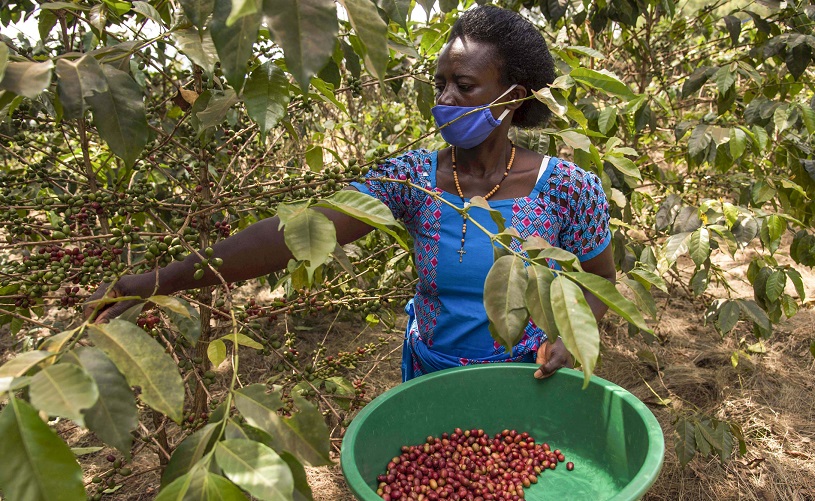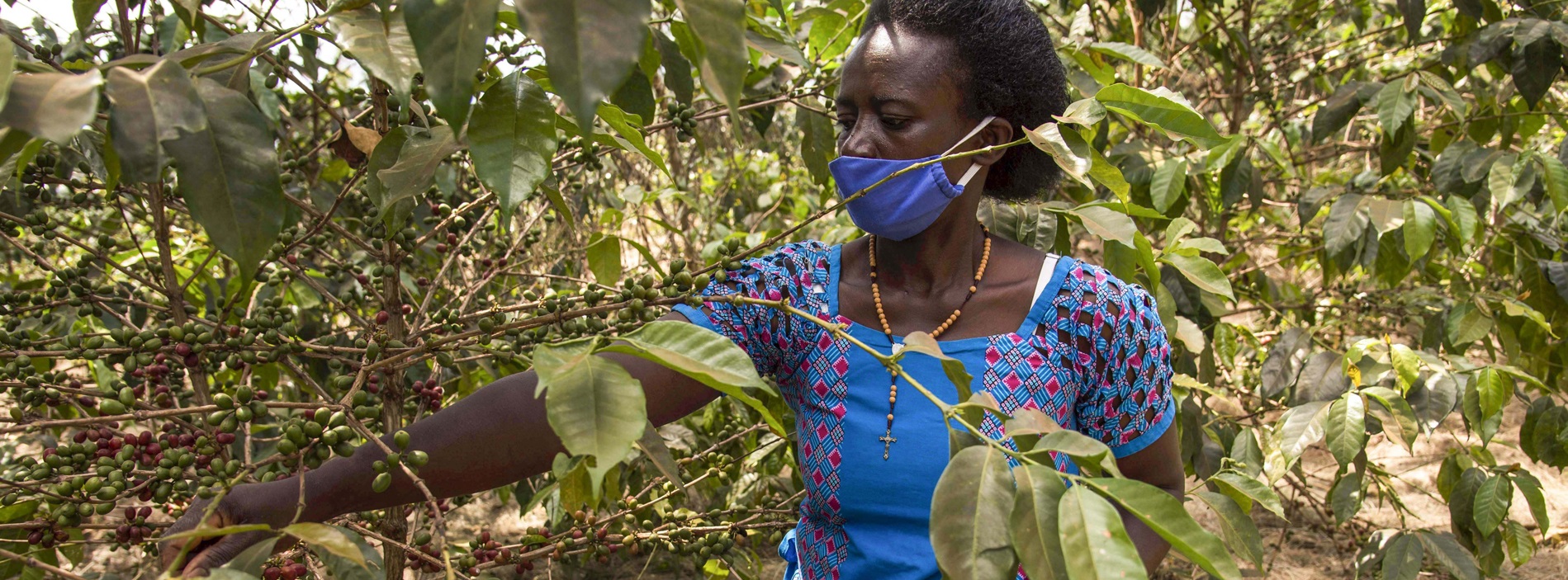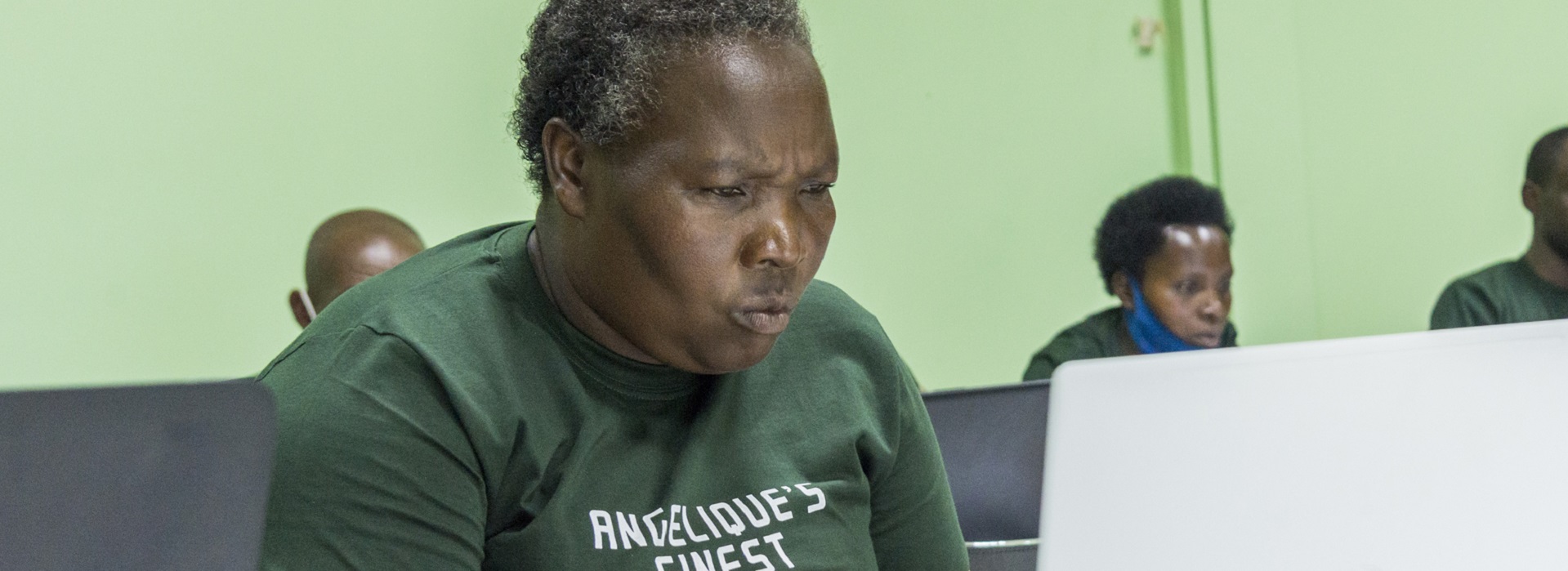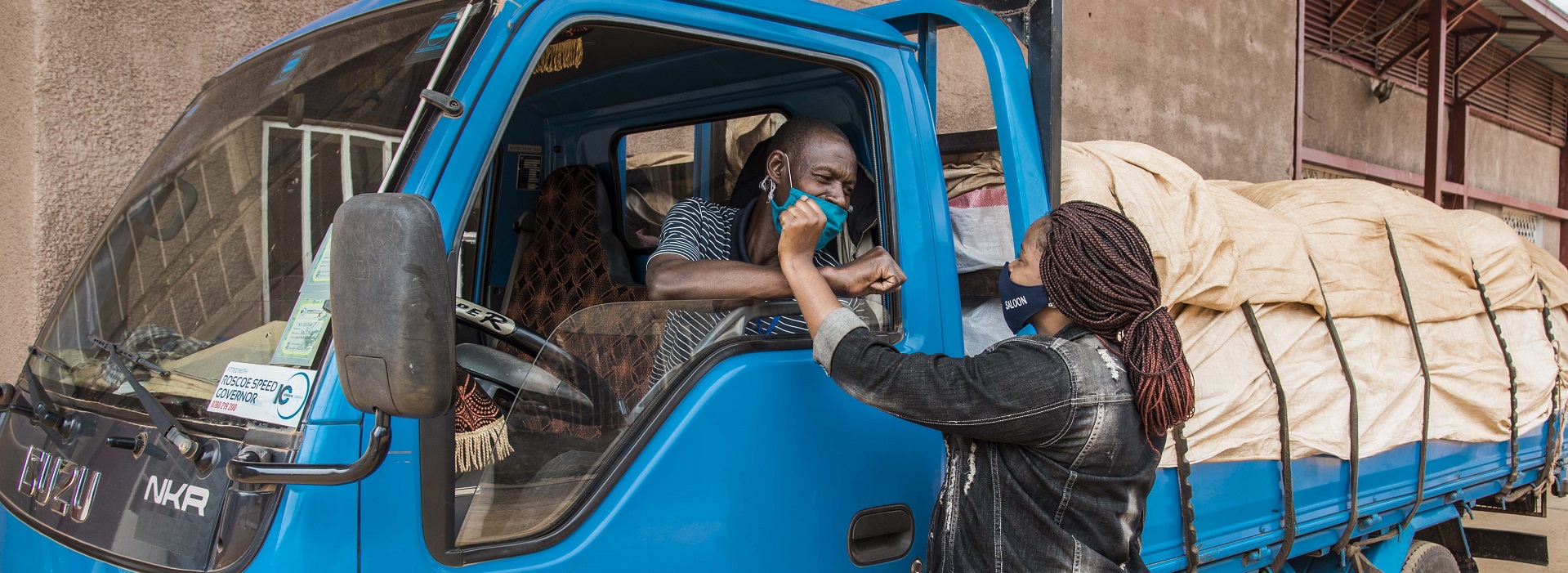

Rural development: The long process of coffee production: transparency from crop to cup
In Rwanda, women coffee farmers are using entrepreneurship and digital innovations to secure adequate payment.
From harvesting through to processing and sorting – coffee production involves a lot of work and commitment. Yet many who work on the coffee farms earn barely enough to live on, and this is particularly true for women. Women farmers in Rwanda are therefore bridging the distance to the consumer using digital innovations, and improving their income in the process.
Against a backdrop of blue skies and the volcanic mountains of Rwanda, women farmers from the Musasa Dukundekawa cooperative sort coffee cherries. The cherries, yellowish orange to crimson in colour, are spread out on large sheets in front of them. They sort the cherries, the raw ingredient of the world’s beloved pick-me-up beverage, a total of four times during processing. This is how they ensure that the quality of the coffee beans meets their own standards.
For women to carry out this tiring work – from planting through to harvesting and sorting – is not unusual. However, at Musasa, it is women who are in charge of running the business. Together with further cooperatives, they founded the Rwanda Smallholder Specialty Coffee Company (RWASHOSCCO), which is committed to equal rights for women in the member cooperatives. However, there are still many shortcomings in the global coffee industry. Although small farmers account for 70 per cent of overall production, they often struggle to earn a living from their work at the beginning of this long supply chain, due to extremely low prices for green coffee.

Increasing incomes through greater transparency
To change this, the Deutsche Gesellschaft für Internationale Zusammenarbeit (GIZ) GmbH is supporting the Rwandan cooperative. GIZ’s work, carried out on behalf of the German Development Ministry (BMZ), includes testing the use of a technology called INATrace. The technology is based on blockchains: a digital, decentralised and therefore forgery-proof database stores the key data for the supply chain – for example, where the beans are roasted, who transports them and, in particular, what price the farmers received for their coffee. End consumers can access this information via a QR code on the product’s packaging.
GIZ is thus tackling multiple challenges at the same time. Frequently, there is no direct relationship between local producers and companies in the global north, which pocket the lion’s share of the income. The supply chain often cannot be traced. To improve the situation for small farmers and their families, companies and governments need to be aware of production conditions. Only then will they be in a position to support good working conditions and tackle child labour. Companies can also set fair prices in long-term contracts.
The progress achieved through the digital app is already being felt financially by the farmers in RWASHOSCCO. The information that the QR code provides about the quality of the coffee, the prices paid, and the actors involved, such as cooperatives and roasters, creates trust above all. This raises the potential of the market and the value of the product, and thus the income of the coffee farmers. ‘INATrace is an incredible platform for coffee producers to show our meticulous product processing transparently,’ says Angelique Karekezi, managing director of the Rwandan coffee association.

Digitalisation pinpoints sustainable farming practices
This applies to cultivation as well as production conditions: while global coffee consumption has doubled in the last 35 years, climate change is causing crop failures. Producers are therefore moving to higher altitudes, where there are better conditions for growing coffee, as it is a sensitive crop. Good agricultural practices preserve ecosystems and secure the supply of raw materials in the long term. Digital traceability makes this visible, which has a positive impact on the situation for small farmers and their families.
Consumers are the last link in the supply chain, after cultivation, trade, transport and processing. It is also in their power to enable socially responsible, environmentally friendly coffee production. To reach consumers, RWASHOSCCO works with Berlin-based social enterprise Kaffee-Kooperative for sales and distribution in Germany. The enterprise sees itself as an extension of the Rwandan farmers and allows them full control over their product. The founder of Kaffee-Kooperative, Xaver Kitzinger, is certain: ‘We need more high-quality, transparent brands that can ensure that producers at the start of the supply chain receive their fair share.’
In 2020, the minimum price received by farmers in Rwanda for their coffee was approximately EUR 1.31 for one kilo of arabica coffee, which by international standards is quite high. Many consumers would be prepared to pay more if it meant that producers would be guaranteed fair pay. INATrace provides useful transparency here. The transferable, adaptable solution, which has a freely accessible and usable source code, is therefore set to be implemented in other agricultural supply chains worldwide in the future, for example in cocoa production.
Last update: March 2023